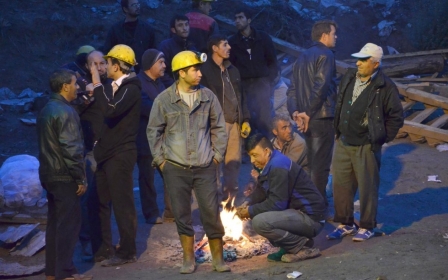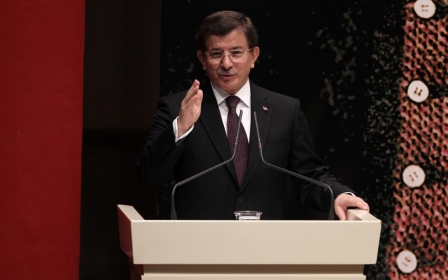New presidential palace opens in Turkey

Turkey’s new Presidential Palace, located on the outskirts of capital Ankara, was unveiled on Wednesday, coming on the back of warnings over the environmental cost of the $350 million construction.
An evening reception to celebrate the palace's opening was also scheduled for Wednesday, but Turkish President Recep Tayyip Erdogan cancelled the gathering so he could travel to a flooded mine in central Turkey where 18 miners are currently trapped.
Located outside of Ankara in the Bestepe area, the complex has become known at the Ak Saray - or white palace in Turkish - which has also been noted as a play on the colloquial name of the ruling Justice and Development Party, the AK Parti - Or 'white party'.
Historically, Turkey’s presidents have been housed in the Cankaya presidential palace in downtown Ankara. The new palace, built at the behest of Erdogan, marks a break with tradition and has led to criticism from opposition politicians that the president is attempting to severe another link to the legacy of Turkey’s founder, Mustafa Kemal Ataturk.
Opposition parties criticised the construction as new evidence of what they see as Erdogan’s autocratic rule, while also lambasting the decision to open the palace on Republic Day, Turkey’s national holiday marking the founding of the Republic of Turkey in 1923. Three parties called for a boycott of palace opening reception.
Kemal Kilicdaroglu of the main opposition Republican People’s Party (CHP) – who are intensely hostile to Erdogan – said, “If you don't go, you won't tarnish yourself.”
Erdogan announced the plans for the palace in September.
“I’ll continue to reside in the Çankaya Palace for a while,” Erdoğan told reporters, according to Hurriyet.
“And then, as the president’s office, we are planning to move into the newly-built building” adding that “according to the plan, our prime minister will move to the president’s residence,” referring to the Cankaya palace.
Originally, the intention had been for Prime Minister Ahmet Davutoglu to move into the new palace.
Environmentalists have condemned the construction of the palace, which comes at the expense of one of Ankara’s “best preserved” green spaces and requires the cutting down of hundreds of trees.
According to columnist Orhan Kemal Cengiz, “there are at least three injunction orders from different administrative courts to stop this construction” noting that the President would be opening a palace that was “built against the courts' orders.
“Now other Justice and Development Party (AK Party) members are just following in the footsteps of their leader,” he continued, writing in Today’s Zaman.
“They completely disregard the law and court decisions.”
Erdogan had previously provoked the ire of environmentally-minded Turks during the 2013 Gezi Park protests, provoked by plans to build over one of the last green spaces in Istanbul.
Though the position of president in Turkey has historically been a symbolic one, Erdogan has expressed a desire to give more powers to the presidency, buoyed by his continuing popularity among the Turkish public.
Stay informed with MEE's newsletters
Sign up to get the latest alerts, insights and analysis, starting with Turkey Unpacked
Middle East Eye delivers independent and unrivalled coverage and analysis of the Middle East, North Africa and beyond. To learn more about republishing this content and the associated fees, please fill out this form. More about MEE can be found here.




